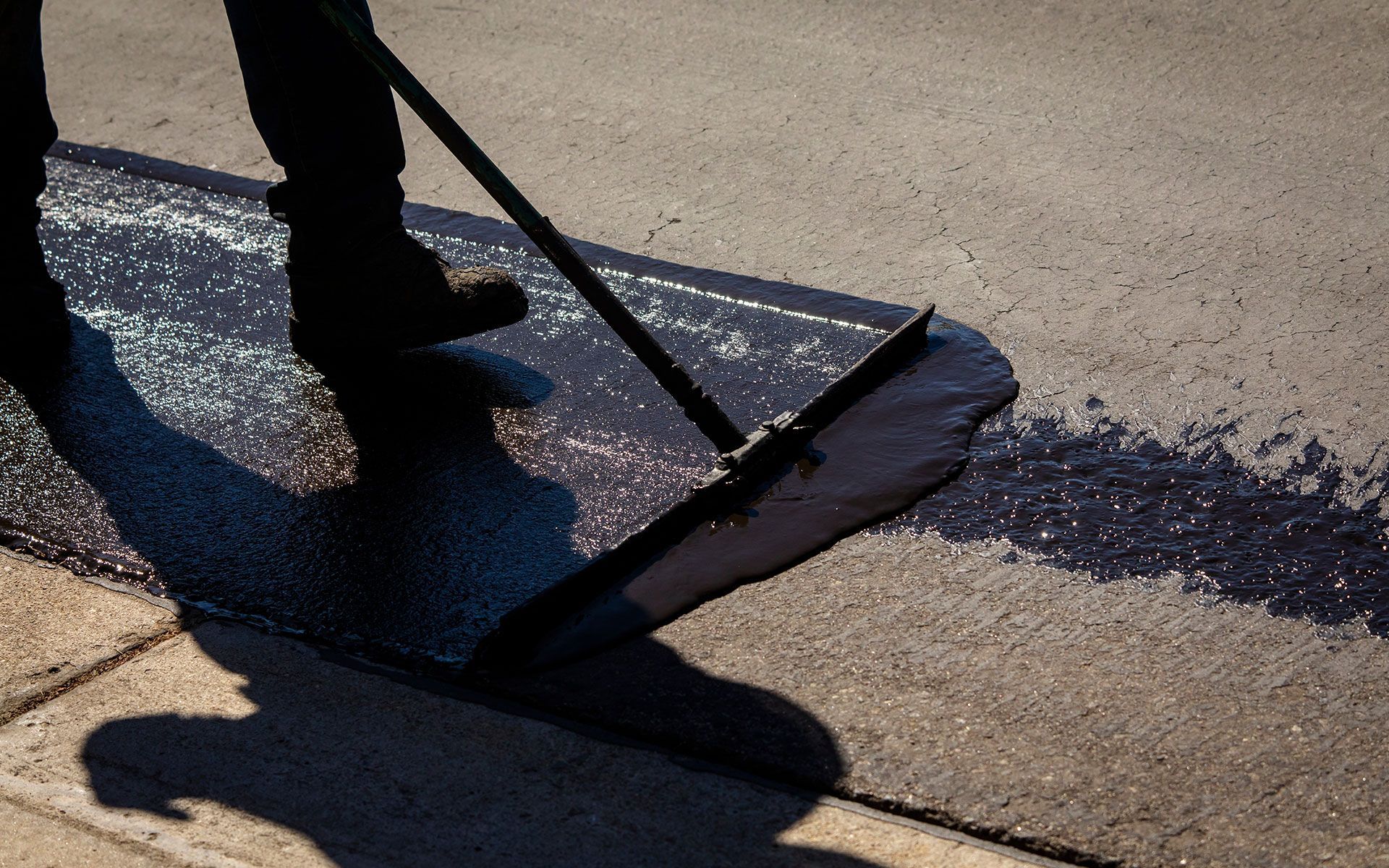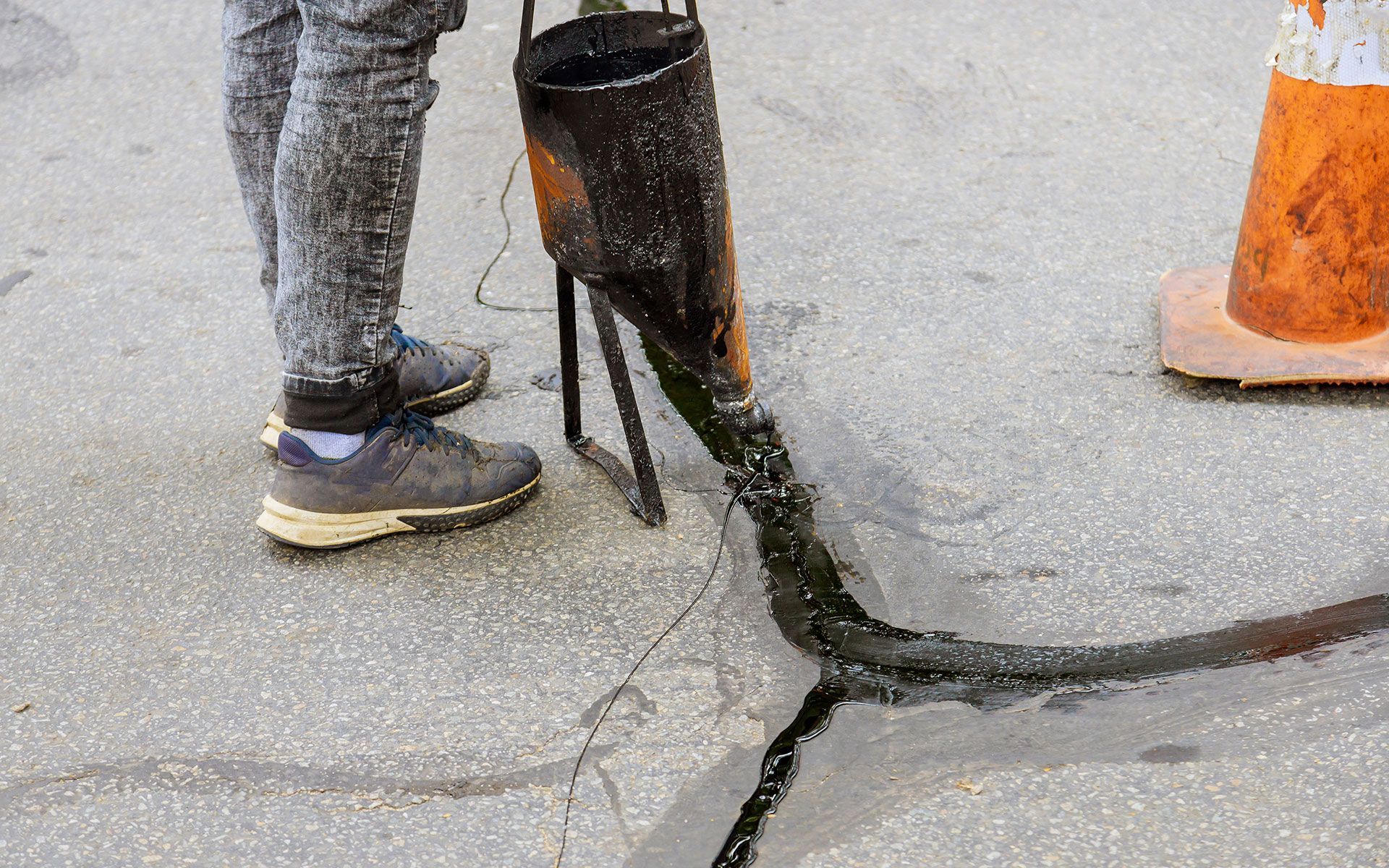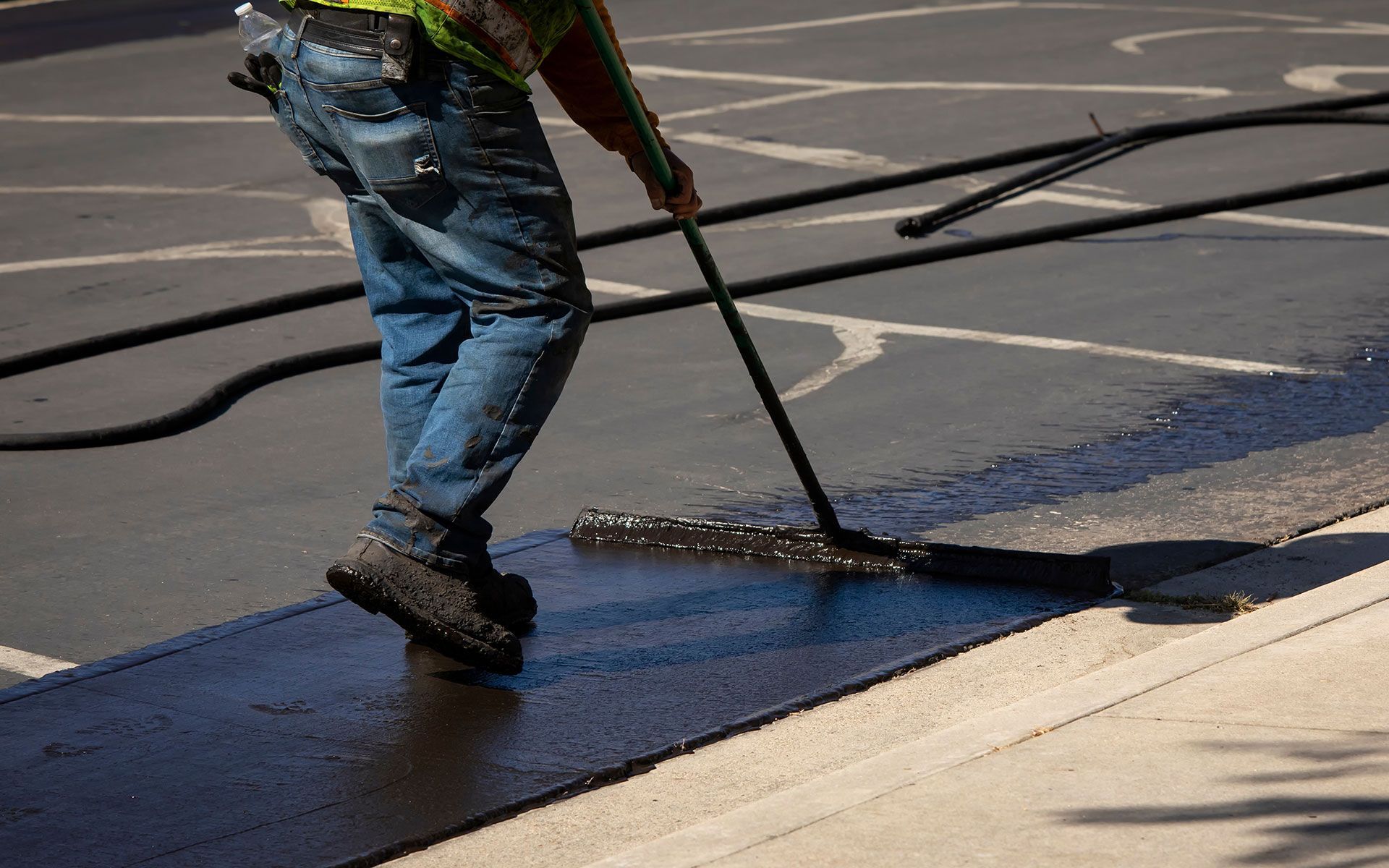Sealcoating
in Brooklyn, Queens, Long Island, New York, NY
In New York, NY, pavement undergoes intense wear from vehicles, climate extremes, and chemical exposure. Sealcoating is an essential maintenance service that extends the life of asphalt by providing a protective barrier against the elements. At M.A.S. Paving and Sealcoating, we apply commercial-grade sealers that guard your investment, enhance appearance, and minimize costly repairs. Our services are customized for NYC’s high-traffic, high-impact environment.
The Function of Asphalt Sealcoating in NYC
Asphalt is porous and susceptible to oxidation, water penetration, and surface degradation. In cities like New York, where the pavement is exposed to salt, oil, UV rays, and thousands of daily tire passes, degradation accelerates without routine care.
Protection from Water and Freeze-Thaw Damage
Unsealed asphalt allows water to seep into tiny surface voids. During winter, water freezes, expands, and cracks the pavement. Sealcoating creates a water-resistant layer that minimizes this destructive freeze-thaw cycle, a frequent issue in New York’s climate.
Defense Against Oxidation and UV Rays
The sun’s ultraviolet rays break down the asphalt binder, leading to brittleness and cracking. A fresh sealcoat absorbs UV rays and shields the asphalt from premature aging. This is especially important for open parking lots and roadways with long sun exposure.
Resistance to Oil and Chemical Spills
Vehicles leak motor oil, fuel, and other fluids that weaken the pavement surface. Sealcoating forms a smooth, non-porous layer that resists chemical penetration, making it easier to clean and less prone to soft spots or surface breakdown.
The Sealcoating Process
Proper sealcoating goes beyond brushing on a surface layer. At M.A.S. Paving and Sealcoating, we follow a detailed process to ensure full coverage, longevity, and minimal downtime.
Surface Cleaning and Preparation
All debris, dirt, and loose aggregate are removed before sealant application. We use blowers, brooms, and surface washers to prepare the pavement. Any cracks or potholes are filled beforehand, as sealcoating is not a repair substitute but a preventative layer.
Edging and Masking
Areas adjacent to the pavement—such as curbs, walls, gates, and landscaped sections—are masked or edged manually to avoid overspray. Clean lines and neat edges are critical in residential properties and commercial storefronts.
Commercial-Grade Sealer Application
We use a high-solids coal tar or asphalt emulsion sealer, depending on site requirements. The material is mixed with silica sand and additives for improved durability and traction. It is applied in multiple coats using squeegee or spray methods, depending on the project scale and surface type.
Curing and Barricading
After application, the sealcoat is left to cure under controlled conditions. Most lots or driveways can be reopened within 24–48 hours. We barricade the area to protect against foot traffic, vehicles, and debris during the drying period.
Ideal Sealcoating Frequency
NYC’s urban environment places significant strain on pavement, making consistent maintenance crucial. For optimal results:
Residential Driveways
Typically require sealcoating every 2 to 3 years, depending on sun exposure, slope, and vehicle use. Regular sealing keeps surfaces dark, smooth, and resilient.
Commercial Parking Lots
Lots with moderate to heavy vehicle traffic may need sealcoating every 12 to 24 months. High-volume areas near building entrances, loading docks, or exits tend to wear faster and benefit from more frequent applications.
Roadways and Private Streets
Paved access roads, alleys, or private streets exposed to constant movement and city grime require routine inspections and sealing within 18–24 months to maintain structural health.
Surface Enhancement Through Sealcoating
Sealcoating does more than preserve asphalt; it dramatically improves curb appeal by restoring a smooth, dark-black surface. In a competitive city like New York, well-maintained pavement reflects positively on both residential and commercial properties.
Improved Visibility and Striping Contrast
A freshly sealcoated lot provides strong contrast for line striping, directional arrows, handicap markers, and other pavement markings. This not only increases safety but also enhances the visual layout of parking areas.
Smoother Surface Texture
Sealing smooths out minor surface inconsistencies and fills superficial voids. While not a substitute for repair, it provides a more even finish that improves drainage and reduces dust and debris accumulation.
Environmental and Safety Considerations
In densely populated areas like NYC, safety and environmental compliance are essential.
Low-VOC Sealers
We use environmentally friendly sealers that comply with state and local VOC regulations. These materials offer strong protection with reduced odor and chemical release during application.
ADA and Pedestrian Safety
We ensure walkways, ramps, and pedestrian zones are safe and compliant. Sealcoated areas are clearly marked, and anti-slip additives are used in areas with foot traffic to reduce accident risk.
Serving New York, NY and the Metro Area
M.A.S. Paving and Sealcoating
proudly provides sealcoating services throughout all five boroughs of New York City. Whether your property is in Manhattan, Brooklyn, Queens, the Bronx, or Staten Island, we bring the same level of professionalism and precision to each job. We also serve parts of Long Island, Westchester County, and Northern NJ for larger commercial contracts.


